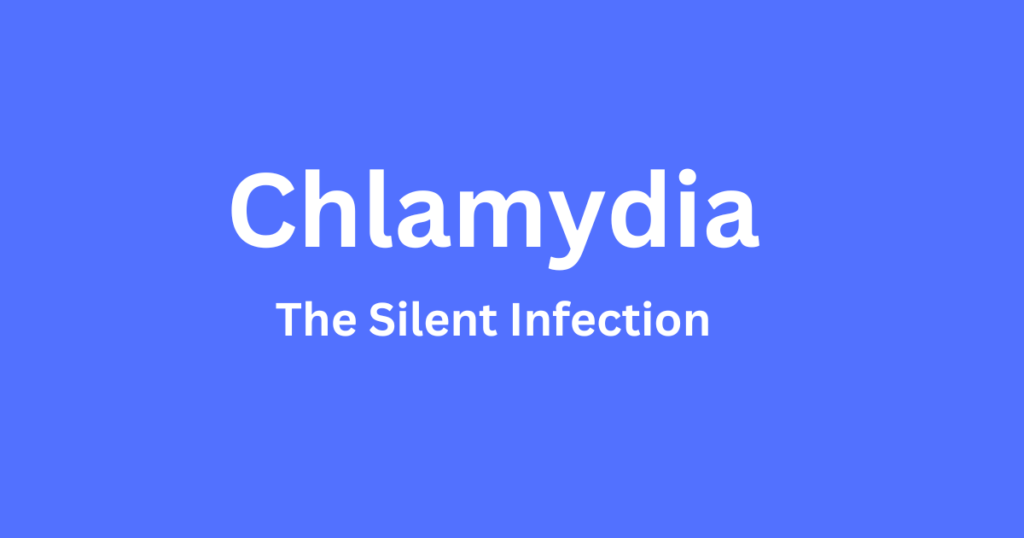
This post will talk about the most important points about Chlamydia. To learn more about this disease, click on the blue links within this post. They will take you to more detailed information.
Hi everyone! Today I’m going to be talking about chlamydia.
Chlamydia is a common STD (aka sexually transmitted disease). This means that it can be spread by, well, sex (gasp).
You may not have heard about it, but it’s pretty common. So, here you’ll learn about what chlamydia is and what it does.
Overview of chlamydia
Chlamydia is a common STD that can be spread by vaginal (regular), anal (different), or oral (also different) sex.
The thing about chlamydia is that it can cause damage to a woman’s reproductive system, which means that it can be hard or impossible to have a baby.
Men can also have problems with fertility, but it isn’t talked about much. That doesn’t mean that men don’t have problems with getting someone pregnant; it’s just that people talk about the female side of it more.
Also, if someone is pregnant, during childbirth, chlamydia can be spread to the baby.
How to get chlamydia
Chlamydia spreads by (like I said before) vaginal, anal, and oral sex. The thing I left out though is that even if your partner doesn’t ejaculate/cum (if you don’t understand what that means ask your parents where babies come from), you can still get chlamydia.
I did also say that if a pregnant woman has chlamydia, then during delivery the baby can get it too. So you may want to make sure you don’t have chlamydia when you’re pregnant.
Symptoms of chlamydia
The bad thing about chlamydia is that most people don’t have symptoms of chlamydia. So you could have it (and spread it) without knowing it.
But for people who DO have symptoms, this is what they usually have:
For women, it would be: abnormal (vaginal) discharge, and a burning feeling when peeing.
For men, it would be: discharge from their penis, a burning feeling when peeing, and pain and swelling in one or both testicles (this is less common, though).
Apparently, both men and women can get chlamydia in their anus (booty hole). Yeah, you heard that right. If there are symptoms, that would be:
Rectal (rectum) pain, discharge, and bleeding.
You should see a healthcare provider if you’re having these symptoms, or:
An unusual sore, smelly discharge, burning when peeing (yes I know I said this twice), or bleeding between periods.
If it isn’t treated
Let’s say you have chlamydia, and you don’t get it treatment. What would happen?
Well, for women, chlamydia could cause pelvic inflammatory disease (PID). Some of the complications from PID are:
- Scar tissue that blocks fallopian tubes
- Ectopic pregnancy; which is a baby growing outside of the womb (this is dangerous)
- Infertility (not being able to get pregnant)
- Long-term pelvic/stomach pain
Apparently for men, they rarely have health problems–-other than a fever and pain in the tubes that are attached to the testicles. This rarely leads to infertility. But some studies say that chlamydia can cause prostatitis, (male) urethritis, epididymitis, and orchitis. It can also affect sperm, which can (NOT rarely) cause infertility.
How it is found and treated
So, if you want to see if you have chlamydia, then laboratory tests can be used. Your healthcare provider may instead use, or ask you to use a cotton swab to get a vaginal sample or they might ask you for a urine sample (that will be tested).
Luckily there’s treatment, which is medicine (I guess that’s obvious but that’s what the CDC says, they don’t talk about what KIND of medicine used.). But it’s important that you make sure that you take all of the medicine you were given so you’re fully cured.
If you take it correctly, you will be cured! But, even though it will stop chlamydia, any permanent damage that chlamydia caused before won’t be fixed. And also, getting reinfected is common too, so you may want to get checked again 3 months after you’re treated.
So don’t be having sex with someone if you know they have chlamydia!
The takeaway

Image from Advantage Plus Medical Center


